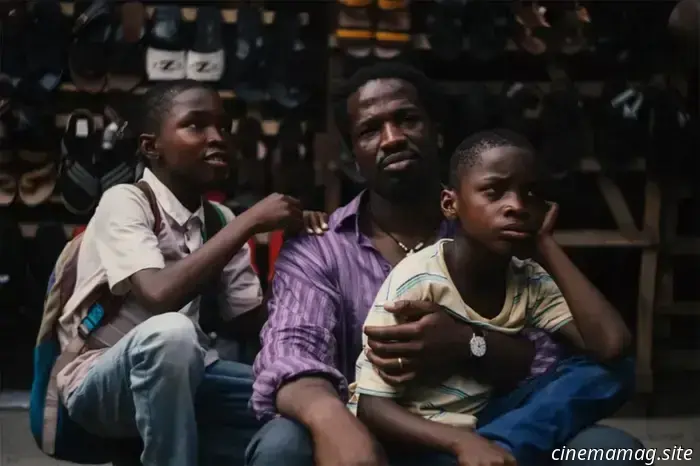
BFI London Review: My Father’s Shadow is a Heartwarming Story of Family Connection That Takes a Cautious Approach.
Crafting an authentic, politically charged narrative from a child's viewpoint can be difficult. For stories set during a tumultuous time like WWII, a combination of education and popular culture provides audiences with immediate familiarity, allowing films to forgo detailed context and feel more genuine without needing to explain historical events happening at the moment. However, given that school history curricula across the Western world have their limits—my own experience in British high school history covered non-WWII topics minimally—filmmakers often struggle to tell a coming-of-age tale amidst political upheaval without treating audiences like the young characters. Akinola Davies Jr.'s My Father’s Shadow, set after Nigeria's 1993 Presidential election—when votes were still being tallied and many held onto naive hope for a democratic shift from an authoritarian leader—loses its authenticity each time it stops to explain the tense political landscape. Though this situation would be the primary topic of conversation, discussions about it feel like they are catering to an audience hearing about it for the first time.
This is the main distraction in an otherwise charming story of two brothers connecting with their distant and mysterious father during a trip from their rural village to Lagos. The need for frequent exposition undermines the narrative, as the protagonists are not learning about the political situation alongside the audience. It suggests a lack of confidence from the debut director, who assumes viewers know more than his leads, who only vaguely grasp that something is wrong in the country without being able to articulate it. A more genuine introduction to the story would have emerged from allowing audiences to discover the truth organically, rather than spoon-feeding context that ultimately betrays their trust. This is particularly striking since the emotions stirred in the film's most powerful scenes do not hinge on understanding the country's political crisis at all. While the election is central to the narrative, the theme of paternal sacrifice would resonate strongly even from a child's limited perspective of the national turmoil.
Godwin Chiemerie and Chibuike Marvellous Egbo, real-life brothers, portray the young siblings Akin and Remi, who often find themselves alone with a father frequently absent for work and a mother who is too engaged with household responsibilities to spend time with them. One morning, their father Fola (Ṣọpẹ́ Dìrísù from Gangs of London) briefly visits, and after they express their frustration over his absence, he agrees to take them on a day trip to Lagos to collect money owed from a security job and seek more work hours. However, the journey to the bustling city isn’t straightforward; nationwide fuel shortages due to an economic downturn hamper their travel plans, and upon arrival, Fola’s desperation to get paid becomes even clearer amidst the nation's chaos.
The tension that fuels Dìrísù’s remarkable performance stems from Fola’s desire to be viewed as a positive role model, striving to make up for his long absences while his children know little about his daily life and understand even less. The film shines brightest when it focuses on this father-son relationship, allowing the societal breakdown to remain on the periphery, surfacing only through glimpses of protests on the beach or the absence of other children at an amusement park. The economy is crumbling, and people are anxious about a possible coup, but the eeriness is most poignant when it quietly intrudes on a family drama about bonding. The coming-of-age trope of children beginning to grasp their parents' perspectives is beautifully handled by Davies Jr. The scene where their father shares how he first met their mother—an untold story until now—captures the moment when the children realize their parents have their own lives and backstories. These understated exchanges serve as the core of the film.
Although the political element is heavily invoked, it is inseparable from Fola’s personal story, as his support for the social democratic candidate M.K.O. Abiola—whose overwhelming electoral victory was nullified amidst accusations of widespread fraud—appears driven primarily by an urgent need to care for his family. Fola is seen entirely through his children's eyes, allowing their gradual understanding of his selflessness to remain intact; the insinuations of him possibly having an affair in the city are lost on their innocent perspectives. Fola’s complexities—including his anti-government activism, which is gradually revealed—are presented in a manner that does not overshadow the simplicity and clarity of his sacrifices and the life lessons he shares with his sons as he becomes more open around them. Dìrísù's portrayal adds depth to the character, suggesting he carries deeper secrets related to his distant behavior out of guilt. His performance does not rely on excessive exposition; the family drama could stand on its own without the political nuances and still maintain its emotional impact.
These issues are typical for a debut feature filmmaker; Davies Jr. occasionally lacks faith in maintaining his protagonists' perspectives, revealing too much about the harsh world while Fola's character remains reticent about his role in it. I believe his next film
Other articles
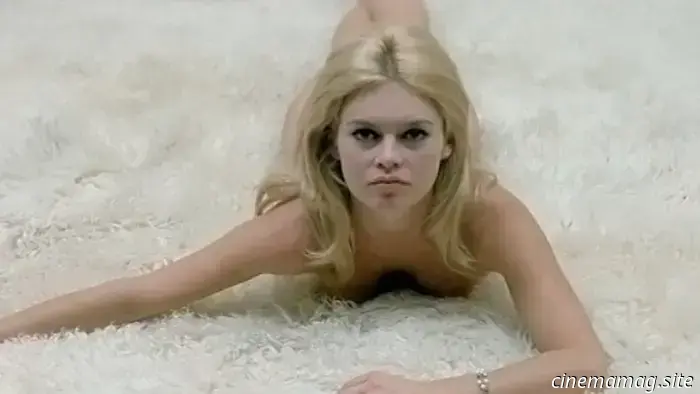 13 Great Films with Minimal Action
Here are 13 great films where not much unfolds.
13 Great Films with Minimal Action
Here are 13 great films where not much unfolds.
.jpg) Film Review – Ballad of a Small Player (2025)
Ballad of a Small Player, 2025. Directed by Edward Berger. Featuring Colin Farrell, Fala Chen, Tilda Swinton, Deanie Yip Tak-Han, Alex Jennings, Jason Tobin, Adrienne Lau, and Anthony Wong. SYNOPSIS: W…
Film Review – Ballad of a Small Player (2025)
Ballad of a Small Player, 2025. Directed by Edward Berger. Featuring Colin Farrell, Fala Chen, Tilda Swinton, Deanie Yip Tak-Han, Alex Jennings, Jason Tobin, Adrienne Lau, and Anthony Wong. SYNOPSIS: W…
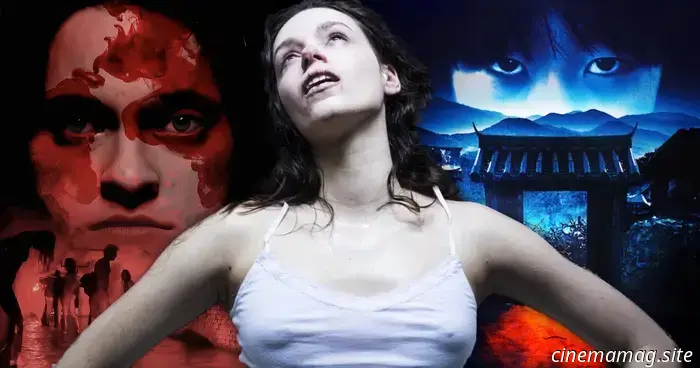 10 Horror Films You Can't Miss That Are Sure to Make You Uncomfortable
Vanessa Maki presents ten excellent horror films that are sure to leave you feeling unsettled. Contrary to popular belief, horror can often aim to evoke discomfort and unease regarding…
10 Horror Films You Can't Miss That Are Sure to Make You Uncomfortable
Vanessa Maki presents ten excellent horror films that are sure to leave you feeling unsettled. Contrary to popular belief, horror can often aim to evoke discomfort and unease regarding…
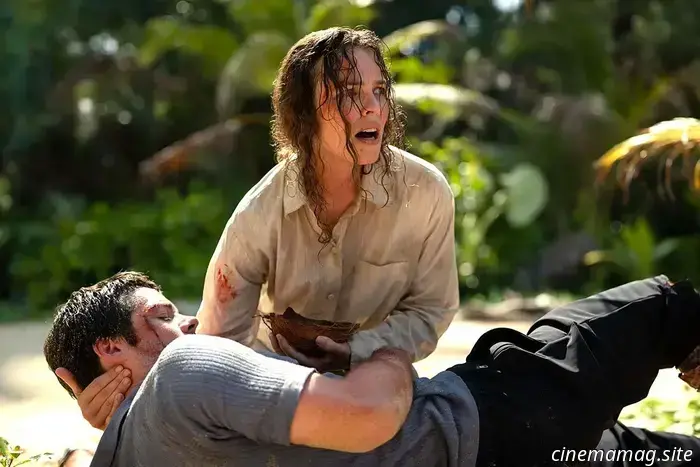 Sam Raimi Makes His Return to Horror with the First Trailer for Send Help
For enthusiasts of Sam Raimi's work in the horror-thriller genre, the wait has been long. Since the release of 2009's Drag Me to Hell, nearly two decades have passed during which the Evil Dead director focused his skills on projects related to Oz and the Marvel franchise. In 2026, he is set to make his long-awaited return to genre filmmaking—ironically, on the exact same
Sam Raimi Makes His Return to Horror with the First Trailer for Send Help
For enthusiasts of Sam Raimi's work in the horror-thriller genre, the wait has been long. Since the release of 2009's Drag Me to Hell, nearly two decades have passed during which the Evil Dead director focused his skills on projects related to Oz and the Marvel franchise. In 2026, he is set to make his long-awaited return to genre filmmaking—ironically, on the exact same
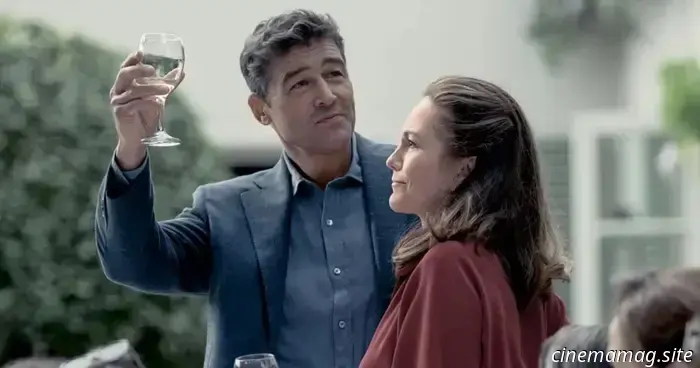 Anniversary Review: Jan Komasa’s Chilling Drama Depicts a Happy Family Being Shattered
Jan Komasa’s Anniversary deserves a spot among the least subtle films of the year, as well as among the most frightening. This brutally effective thriller rarely hesitates to convey its message and doesn’t hold back its renowned actors from delivering intense performances—even when they sometimes need to hold back. However, it
Anniversary Review: Jan Komasa’s Chilling Drama Depicts a Happy Family Being Shattered
Jan Komasa’s Anniversary deserves a spot among the least subtle films of the year, as well as among the most frightening. This brutally effective thriller rarely hesitates to convey its message and doesn’t hold back its renowned actors from delivering intense performances—even when they sometimes need to hold back. However, it
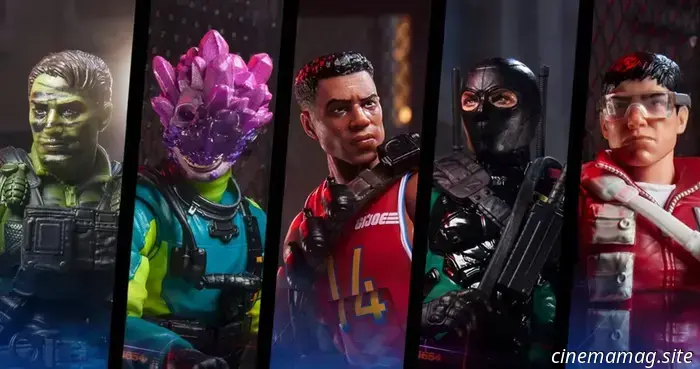 Pre-orders open for the new G.I. Joe Classified Series action figures.
After teasing fans with digital images leading up to this past weekend's New York Comic Con, Hasbro has officially opened pre-orders for the upcoming wave of G.I. Joe Classified Series action figures...
Pre-orders open for the new G.I. Joe Classified Series action figures.
After teasing fans with digital images leading up to this past weekend's New York Comic Con, Hasbro has officially opened pre-orders for the upcoming wave of G.I. Joe Classified Series action figures...
BFI London Review: My Father’s Shadow is a Heartwarming Story of Family Connection That Takes a Cautious Approach.
Presenting a genuine, politically sensitive narrative through the eyes of a child can be difficult. In stories set in eras like WWII, the blend of educational experiences and popular culture creates an immediate recognition for viewers, enabling films to forgo extensive explanations and feel more immersive by not including soundbites discussing
